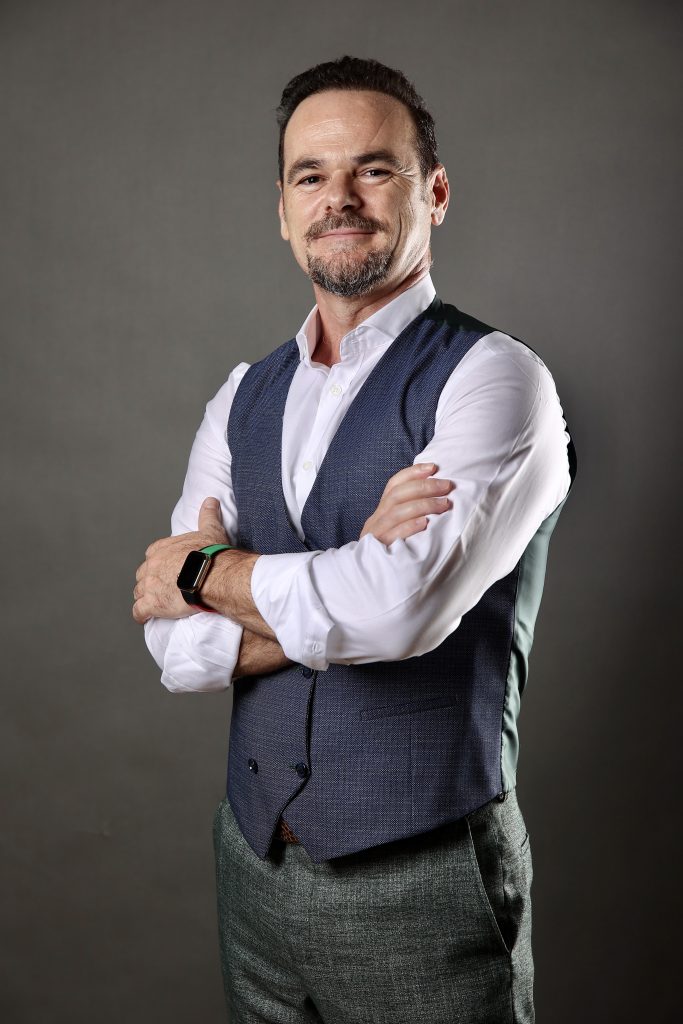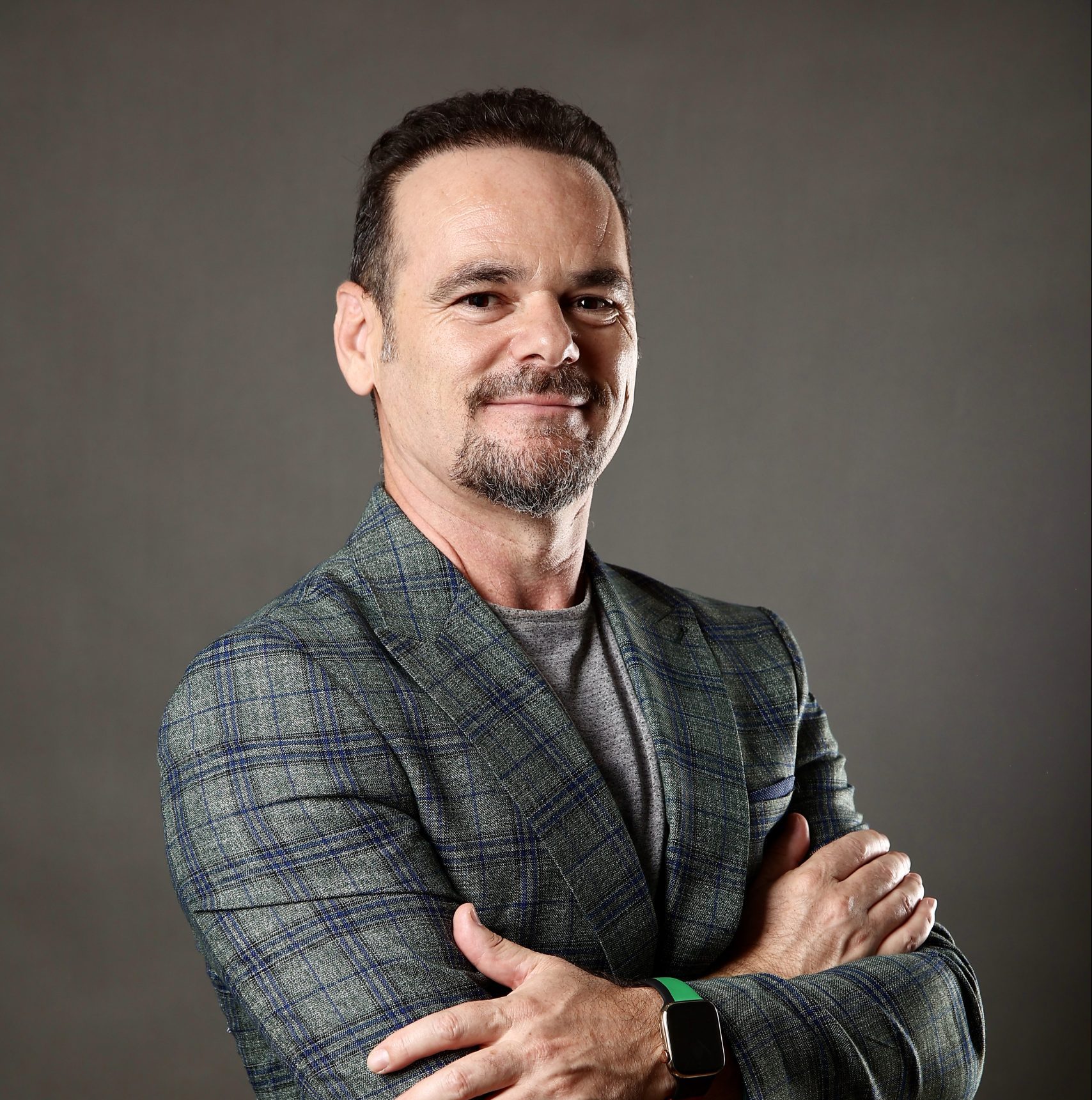In a world filled with stories of resilience and triumph, Dr. Bilal’s life journey is a testament to the power of determination, dreams, and the pursuit of justice. Born in an Albanian communist concentration camp, his early years were marked by hardship, but they also sparked a deep desire for success drawn from the pages of Western novels.
Motivated by his family’s legacy of resistance against oppression, he made a vow to study law and fight for justice whenever given the opportunity. His journey took him from Albania to London, where he pursued law studies and specialized in international business law.
Completing a Ph.D. in Strategic Leadership further enhanced his understanding of leadership and shaped his career in both public and private sectors. As Dr. Bilal embarks on a new journey as a motivational speaker and life coach, his story remains an inspiration for those who truly believe in lifelong learning and pursuing their passions.
[ez-toc]
Can you share more about your early years growing up in a communist concentration camp and the impact it had on your perspective and drive for success?
Ever since I started to understand and experience the reality it became more and more obvious to me that being treated unfairly and most importantly being treated differently to other kids was something that I had to get used to, as there was nothing I could do to change the reality of it.
Throughout my childhood and adolescence, the phenomenon that caused me the most bitterness, low self-esteem and insecurity was comparing myself to others. I could not even be compared with my peers at the concentration camp. Since the vast majority of the kids at the concentration camp had their father at home, while my father was locked away in political prison.
Other kids at the concentration camp had some of the basics (like food and clothes) while most of the time I went hungry and was wearing ravaged clothes. Then in adolescence, as if putting the seal to everything in relation to comparing myself with others, at the age of 14 as I was prohibited to go to secondary school – I was ordered by the authorities to do heavy labor work in agriculture (during communism internees were categorically prohibited to go to university or college, but they were allowed to go to secondary school – so my case was a special exemption from the exclusionary rule itself).
To this extremely burdened emotional state (due to comparing myself with others) it just thankfully happened that I found the ‘cure’ through what I now call the phenomenon of ‘escaping into books’. So, by reading various novels of western authors (which were indeed very hard to find back in communist Albania), I was inspired and aspired to become like their characters.
My desire to achieve success (to become knowledgeable, articulate, polite, famous, rich, etc) has been a deeply ingrained mindset that I have cultivated since my childhood in trying to emulate my role models exemplified in the characters of western authors.
Your family’s history is marked by opposition to the communist regime. How did your family’s experiences influence your academic and career choices, especially in the field of law?
While in the concentration camp, during my early teen years my biggest and wildest dream was to flee Albania and go to the US to study law and become a lawyer. My grandfather had been shot without trial by the communist dictatorship just for being a good patriot and collaborating with British SOEs against Nazis (even though he was someone who had been graduated as a student in Austria), my dad was locked away in a political prison (just for being courageous enough to speak his mind) since I was two years old, my family was exiled in various concentration camps since May 1945.
All these injustices had me fired up inside, instilling a deep passion about law and justice. So, I had sworn to myself – if I ever got free there was no other choice for me but law.

Tell us about the pivotal moments or individuals who inspired you to pursue a career in law and international business law, considering your challenging beginnings.
As I said before, the severe injustices that my family had been subjected to and all the deprivations that I had experienced throughout my childhood and adolescence, had me deeply fired up inside for justice. So, I’ve always felt that given the chance, studying law and becoming a lawyer was the right tool how I could give my contribution to my family and my people.
Thankfully, when communism fell, I was so adamant to fulfill this dream of mine. In 1993, Lord Julian Emery (a friend of my grandfather) came to Albania receiving a medal from the Albanian president of that time. My father met him and thereafter my dream started to become a reality.
So, I started my law studies in London. After finishing my bachelor studies, living in the financial capital of Europe led me thinking that focusing on international business law would give me a competitive edge when I returned to Albania (the scholarship I got with the help from Lord Emery had a condition that after finishing school I had to return to Albania, so I had to honor that commitment I took in front of him).
Your academic journey is quite diverse, from law to international business and aviation law. How did these different areas of study complement each other in shaping your career?
Ever since I returned to Albania I’ve engaged in various interesting projects and works, but all of them revolving on commercial and corporate law. I had the opportunity to study international aviation law while I was working as director legal for the German company operating Tirana airport.
I think that I’ve always held an interest in expanding my professional knowledge and whenever an opportunity has arisen, I’ve never had any hesitation to go for it.
You completed your PhD in Strategic Leadership. How has this advanced degree contributed to your leadership roles, both in the public and private sectors?
Again the PhD in Strategic Leadership was something of an opportunity to me. When I was director legal at the airport company, it just happened that I was went to Vienna very frequently as I was representing my company in an international arbitration case.
In Vienna I’ve met a lot of interesting and influential people and one of them introduced me this opportunity to study for my PhD. But instead of paying the tuition to the university, I could contribute in kind (like a barter transaction) in giving lectures at the same university for its undergraduates in business law.
My PhD degree in Strategic Leadership has been a massive help in structuring and refining my practical knowledge about leadership and making significant strides in my career (I believe leadership skills have a tremendous impact in all walks of life, both professional and personal).
Could you elaborate on your motivation for enrolling in the Executive Coaching program? How do you plan to integrate coaching into your career trajectory?
In the last couple of years I felt that I have taken and given as much as I could in my legal career. So, without saying I’ve felt bored with law it may be worth saying that recently I’ve felt that I have so much more to contribute – beyond being a lawyer – to give and share with enthusiasm and passion with the world about my professional and personal life experiences.
So, as a blueprint for I plan in my career I’ve written a book in the genre of personal development, titled: ’12 MINDSETS to improve life radically’. My career goal now (for which I have a tremendous passion to share with as many people as possible) is to become an international motivational speaker and life coach. However, given the fact that throughout my career I have worked with executives (being one myself for many years) and knowing what motivates them, knowing theirs challenges and goals, I think makes me much more suitable to initially coach them.
Hence, enrolling onto an accredited ICF Executive Coaching program I feel is the right approach for my credentials as a life coach and motivational speaker.
Starting your own law firm is a significant achievement. What were the biggest challenges you faced during this entrepreneurial journey, and what advice would you offer to aspiring entrepreneurs?
Judged by my experience, I believe that the biggest challenge an entrepreneur faces is making the decision to start out (when I’ve took the decision to start my own law firm I had a very well-paid job, but I also had much higher ambitions that I somehow wanted to fulfill).
My advice is simple (but maybe not easy): (i) focus on your passions, talents or skills; (ii) come up with a well-structured SMART goal; (iii) be courageous to take that crucial first step; (iv) persist no matter what, because perseverance is always associated with the ‘lucky breaks’; (iv) work very hard until your expertise and reputation will make you work smart.
Then you will most likely experience the true self-actualization. Just like Confucius said: ‘when we do for work something we like, we never work a single day in our life’.
As a motivational speaker and coach, you inspire others to improve their lives. Can you share a few of your key “mindsets” for personal development that have resonated most with your audiences?
On a personal development level I love to share with my audiences how they can cultivate and practice the concepts and wisdom associated with: acceptance and Amor Fati, forgiving everyone and anything, equanimity, gratitude, etc.
On a professional development level, I love to share with them how they can learn and apply the soft skills of leadership, emotional intelligence, public communication, persuasion and negotiation – combining them with the mindsets of ‘every failure is stepping stone to success’, not comparing our first chapter with somebody’s tenth chapter, Ikigai (purpose), etc.
Your involvement in organizations like the Albanian-British Chamber of Commerce and the International Lawyers Association is impressive. How has networking and being part of these associations influenced your career?
Life has taught me to truly believe in this wonderful and wise saying (not only in a financial sense but in its entire dimension): ‘your network is your net worth’.
So, I’m truly blessed to know so many wonderful, kind and talented individuals as a result of my professional networking. It gives me great satisfaction to acknowledge to them (or sharing with others) any contribution (no matter small or big) that I’ve had from anyone of them in my career advancement.
You’ve been an external university professor in Business Law for many years. What aspects of teaching and mentoring students do you find most rewarding, and how does it complement your other professional endeavours?
I love teaching and mentoring for two main reasons: (i) because of the direct positive contribution I have on the life of the students (I actually experience the so-called ‘giver’s high’ when I teach and mentor); and (ii) because I firmly believe in the saying ‘who teaches others, also teaches himself’.
So, my teaching and mentoring always keeps me updated, ‘on my feet’, and what I truly love to be for myself – a life-long student.



